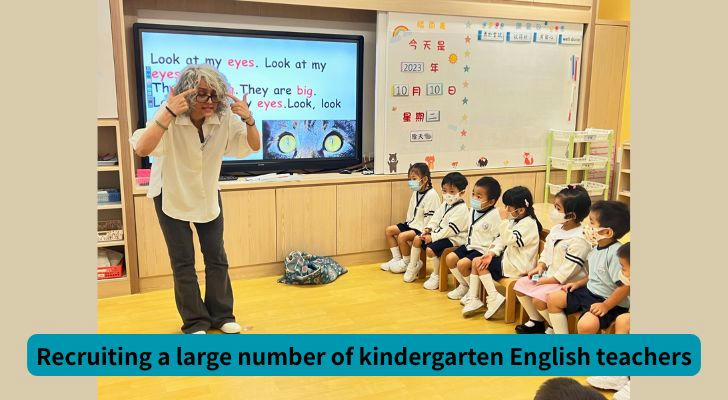Nursery Teacher Recruitment: Inspiring Young Minds in Japan

Japan's education system is renowned for its emphasis on early childhood development, and the role of nursery teachers is pivotal in shaping young minds. As the demand for quality childcare continues to grow, there is a significant opportunity for passionate and dedicated individuals to join the ranks of nursery teachers in Japan. In this article, we'll explore the recruitment process, the skills and qualifications required, and the rewarding journey of nurturing the next generation.
Summary: This article highlights the importance of nursery teachers in Japan's education system. It discusses the recruitment process, the skills needed, and the fulfilling career path available to those interested in working with young children.
The Role of a Nursery Teacher in Japan
Nursery teachers in Japan play a crucial role in the early development of children. They are responsible for creating a safe and nurturing environment where children can learn, play, and grow. The primary focus is on fostering social skills, emotional development, and basic academic skills through interactive activities and play-based learning.
Key Responsibilities
• Creating a Safe Environment: Ensuring that the nursery is a safe and secure space for children.
• Promoting Social Skills: Encouraging children to interact with peers and develop social skills.
• Supporting Emotional Development: Helping children understand and manage their emotions.
• Teaching Basic Skills: Introducing children to basic academic skills such as reading, writing, and counting.
• Parental Communication: Keeping parents informed about their child's progress and development.

Recruitment Process
The recruitment process for nursery teachers in Japan typically involves several stages:
Application Submission
Candidates interested in becoming nursery teachers must submit an application form. This form usually includes personal information, educational background, and relevant work experience. It's important to highlight any previous experience working with young children or in childcare settings.
Interview
Selected candidates will be invited for an interview. During the interview, candidates should be prepared to discuss their qualifications, teaching philosophy, and how they plan to create a positive learning environment for the children. Demonstrating a passion for working with children and a commitment to their development is key.
Background Check
Employers may conduct a background check to verify the candidate's credentials and ensure they have no criminal history. This step is crucial to ensure the safety and well-being of the children.
Training and Certification
In Japan, nursery teachers often need to complete specific training programs and obtain certifications. These programs cover topics such as child development, classroom management, and first aid. Completion of these programs ensures that teachers are well-prepared to meet the needs of young children.
Skills and Qualifications
To be successful as a nursery teacher in Japan, certain skills and qualifications are essential:
Patience and Empathy
Working with young children requires patience and empathy. Teachers must be able to understand and respond to the emotional needs of each child, providing support and guidance as needed.
Creativity and Imagination
Creativity is key in engaging children and making learning fun. Teachers should be able to think outside the box and come up with innovative activities that capture the children's interest.

Communication Skills
Effective communication is crucial for building strong relationships with both children and parents. Teachers should be able to clearly communicate expectations, progress, and any concerns.
Organizational Skills
Managing a classroom full of young children requires strong organizational skills. Teachers must be able to plan lessons, manage time effectively, and maintain a well-organized classroom environment.
Knowledge of Child Development
Understanding the stages of child development is essential for providing appropriate support and activities. Teachers should be familiar with the physical, cognitive, and emotional milestones of young children.
Benefits of Working as a Nursery Teacher
Working as a nursery teacher in Japan offers numerous benefits:
Personal Fulfillment
Helping children learn and grow can be incredibly rewarding. Seeing the progress and development of each child brings a sense of satisfaction and fulfillment.
Job Security
The demand for quality childcare in Japan is high, which means job security for those who are passionate about working with young children.
Work-Life Balance
Nursery teachers often have flexible schedules, allowing them to balance work with personal life and other commitments.
Professional Growth
There are opportunities for professional growth and development through workshops, training programs, and further education.
Conclusion
Becoming a nursery teacher in Japan is a rewarding career path that offers the opportunity to make a significant impact on the lives of young children. With the right skills, qualifications, and passion, anyone can inspire and nurture the next generation. The recruitment process may seem daunting, but with preparation and dedication, it's an achievable goal.
By pursuing a career as a nursery teacher, individuals can contribute to the development of young minds and create a positive and nurturing environment for children to thrive. Whether you're just starting out or looking to advance your career, the field of early childhood education in Japan offers endless possibilities for growth and success.
